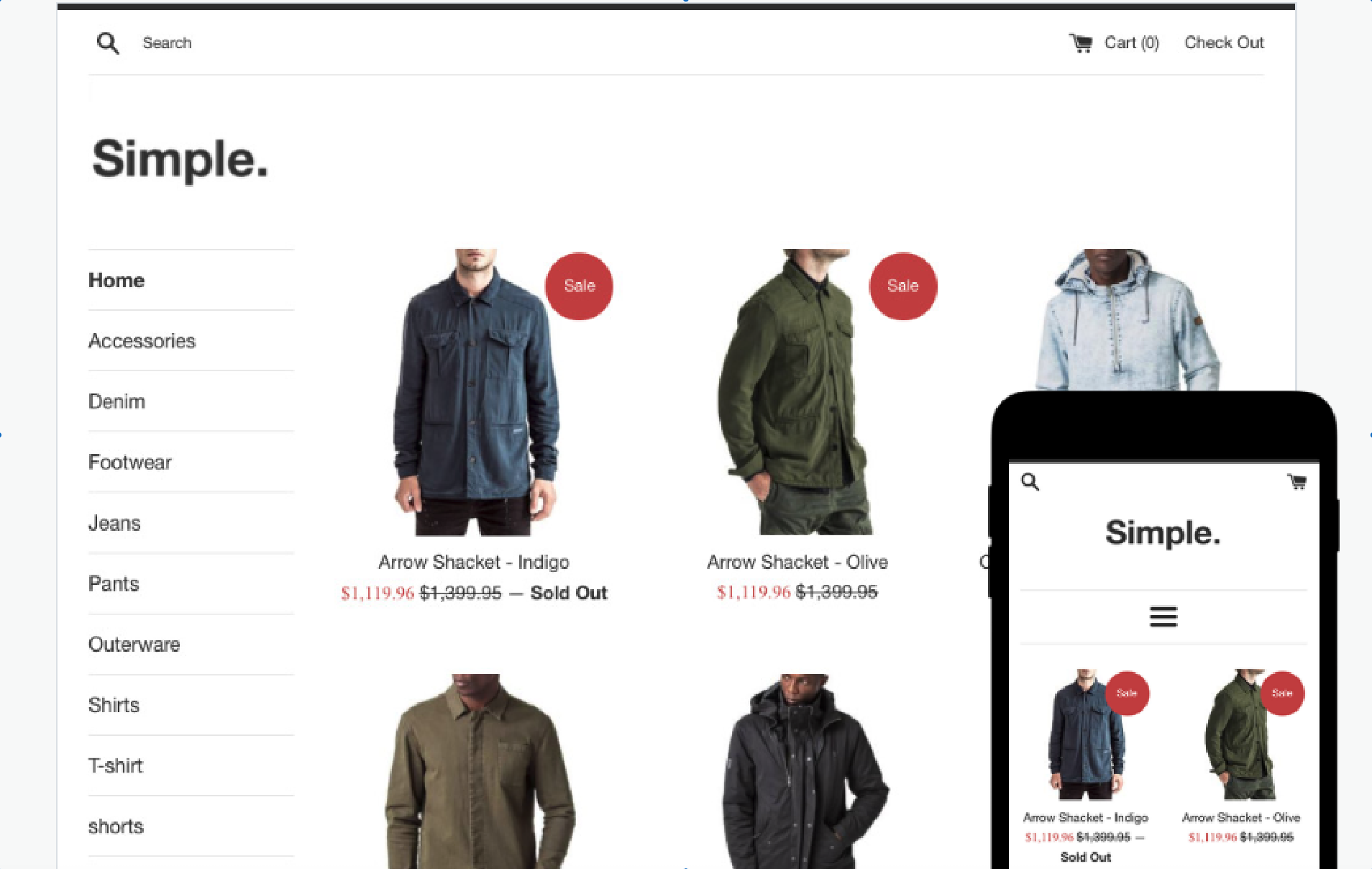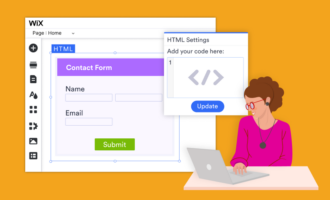Wix and Shopify are two of the best website builders on the market, and when it comes to which platform outdoes the other in the eyes of users, the answer is — it depends.
Both have helped millions create beautiful, high-quality websites without requiring too much technical know-how. That said, Shopify is wholeheartedly committed to helping businesses of every size create e-commerce online stores, whereas Wix is more focused on making it easy for people to put together a website quickly for any purpose — and without too much hassle.
That means vendors and sellers looking to build and scale their business may be better off leveraging all of the fancy e-commerce features that Shopify offers, but those who want to show off their work with a gorgeous personal portfolio or get a small online store up and running might want to consider Wix and its super simple drag-and-drop solution.
Regardless of your intent, it’s good to have the facts before you make your final decision. We’ll compare Wix and Shopify across all the most important categories — like price, customer support, and more.
Wix vs Shopify: Cost
Wix
One of Wix’s greatest assets is the fact that it offers a completely free plan with no expiration date or hidden costs. This option doesn’t allow you to take online payments, and it’s limited in terms of features and storage and bandwidth. But if you’re looking to keep your costs down, this is a great option.
Additionally, Wix offers premium personal plans starting at just $17 per month and going up to a reasonable $159 per month, with each tier offering various levels of bandwidth, video hours, and credit toward various analytics and marketing apps.
Shopify
Shopify, on the other hand, gives users a free 90-day trial, at which point you can opt for one of its three monthly plans. The Basic plan starts at $29 per month, the Shopify plan rings in at $79 per month, and the Advanced plan costs $299 per month.
Plans vary largely based on the number of staff accounts they dole out as well as shipping discounts, payment rates, and reporting features. All plans include unlimited bandwidth and no setup fees.
Wix vs Shopify: Which has the best templates?
Wix

Wix also separates itself from the pack with its massive array of templates. The website builder offers over 800 designer-made options that are fully customizable and ideal for a wide range of purposes — from giving aspiring photographers a stunning platform to display their work to helping small e-commerce businesses put their best foot forward. And you can choose from over 100 fonts or upload your own.
Create and embed powerful Wix forms in your site. Follow our guide to learn more about how to add Jotform to your Wix site easily.
Shopify

Shopify has a considerably smaller number of templates — which it calls themes — all of which are built for e-commerce businesses. These are organized based on the number of items you may be selling, how you want a product page to look, your layout, etc.
Wix vs Shopify: Which provides more comprehensive customer support?
Wix
The Wix website builder fields customer support queries with a callback service that’s available all day, every day. Anyone with a Wix account can log in and file a ticket, at which point a representative will contact you to discuss your issue. The Wix support center also boasts a massive library of helpful articles with step-by-step instructions as well as the answers to frequently asked questions. And if you prefer live assistance, Wix also offers online support chats for its customers in different languages.
Shopify
Shopify offers around-the-clock customer support, with help on hand via email, chat, and even telephone. For simpler questions, the e-commerce website builder also has an extensive help center complete with tutorials and user guides as well as discussion forums where users can get insight from the people using the service.
Wix vs Shopify: Which is best for e-commerce online stores?
Wix
Wix has plans for business and e-commerce entities that make it easy for customers to check out online and pay with an assortment of credit cards, debit cards, and PayPal. They also offer SSL certificates that ensure safe transactions, vouchers for advertising via Google and Bing, the ability to connect your own domain, the power to set shipping rules, and the opportunity to leverage features that allow you to run custom marketing campaigns.
Shopify
Shopify’s website builder is committed to making it simple to create and manage online stores, and it should come as no surprise that they have the features to prove it.
Anyone who builds a storefront on their platform gets a mobile-friendly shopping cart, the chance to connect their own domain name, secure checkout that integrates with over 100 payment gateways, discounted shipping rates, and so much more. Shopify also makes managing and marketing your products that much easier with functionality like an easy product review option, automated abandoned cart emails, inventory management, etc.
Photo by Karolina Grabowska on Pexels









Send Comment: